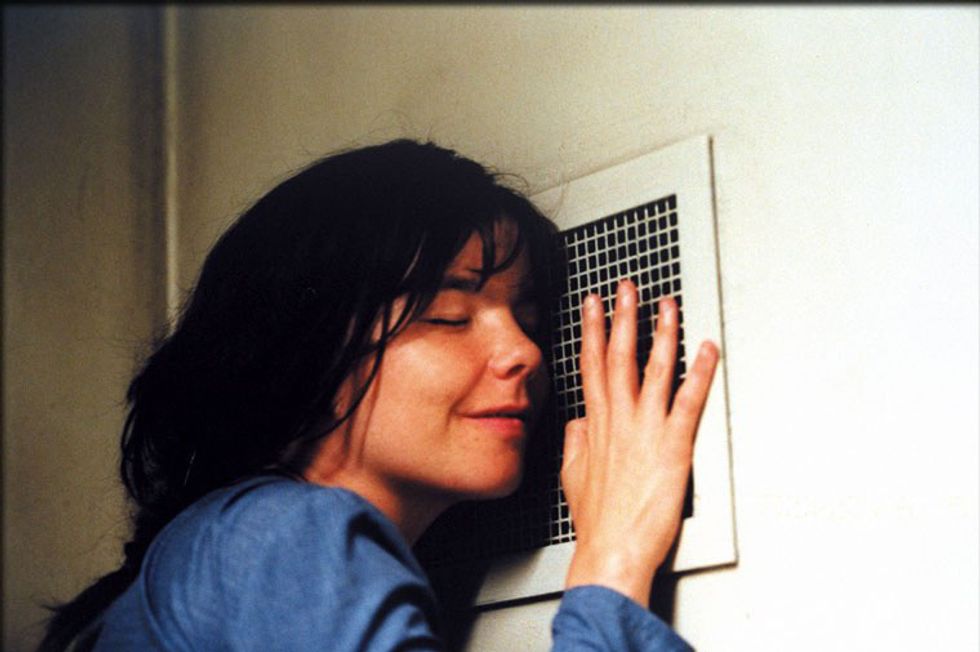In every genre of music, there remains those few individuals that dive deeper into their craft, often touching subjects that we would normally avoid speaking about at the dinner table. Some music can be looked to for that spiritual connection, often times it’s usually gospel or a form of rhythm and blues. However, depending on the artist, that sense of enlightenment can come from any genre. In 2014, pop singer GAIN released the song "Paradise Lost," a song that pays homage to John Milton’s poem "Paradise Lost" and the Christian/Judaic Book of Genesis. The song challenges the original message of the Adam and Eve story and brings many things to light about religion like it’s history of control and manipulation, along with questions about our why we exist in this world. (Photo Credit: Paradise Lost Music Video)
“Anyone looking for the paradise lost. Like sweet honey. Maybe I am that your diamond lost. Like something you want like crazy.”
A good question brought up by GAIN in these lyrics is what exactly is the “Paradise”? We see in movies and read in stories of people whom are in constant search of happiness and being able to live happily in the place known as the paradise, but often we are left at the end of the plot just assuming that they achieved it. But did they really? GAIN’s image in the video can the topic of the whole conversation depending on how you interpret it. In the early parts of the music video, she is seen as some of the individuals in the Book of Genesis. At first, she’s a darker version of Eve, but as the video continues another side is shown and she becomes the snake. Is Eve the burning desire mentioned really an innocent quest for paradise, or just a cover to hide man’s inner greed a.k.a. the snake?
In the movie "Dancer in the Dark," the main character Selma sings “My Favorite Things” to comfort herself. As the song progresses she begins to prance around her cell and seems somewhat happy despite the fact that she’s going to be executed. Selma’s situation can be compared to the lyrics, “I feel. I’m real. Where are you right now? Right now, I’m almost at paradise,” and it brings up several questions. Was Selma creating a temporary paradise for herself? Could it be her paradise was just the feeling of relief and joy that she felt through singing? Did it come to her later on in death? Or was her story just an example of someone who spent their whole life trying to attain it only to have it taken from them by outside forces? What would’ve happened if she, or anyone else for that matter, had achieved it? We can’t say for sure that we would be satisfied if we ever reached the paradise that we have envisioned for ourselves. We see in literature, theatrical, and film plotlines that a person could have everything in the world and be living in what many would call paradise. Selma did die in what seemed like a very undesirable setting, but that doesn’t necessarily mean she gained nothing from losing her life. In death she no longer has the endure the struggle of the living. Whether or not she knows this, is another conversation for another time.
“They’re talking about a fantasy. They’re making up another fantasy. They’re making up a story so that they can control you and me.”
In the final moments of the song, GAIN makes a bold statement against society’s depiction of paradise. Some fans state that it was a jab against religion, but in all reality in can be applied to anyone who holds power over other individuals, from the government, the school system and even our own families. Each of these group seem to give us an image of what they consider paradise: being the most powerful nation, having the best grades, and carrying on the family name. But what if you wanted to be the neutral Switzerland instead of the next empire? What if good grades didn’t truly represent your talents? What if you weren’t looking for a relationship or trying to have kids? Society doesn’t care, unfortunately; they want us to embark on the paths they choose for us. In the music video, GAIN in her white dress is seen as a pure, innocent beauty, the vision that society may have of her paradise. But after shedding the dress and revealing the black leotard it’s obvious that this, the sensual, darker, more majestic image is the paradise she has been wanting.
"No need for elaborate words, no need for lies. You are my, and I’m your diamond lost.”
So what can we conclude from all this? That us humans are all greedy and will never be contempt with anything? No, I think it’s more of a battle between the feeling of satisfaction and guarantee of what might be. Should we continue to reach for our selfish desire in order to reach what call paradise? Or should at some point we try to be contempt with what we have already? There will always be someone in the world that we are better off than, but we can’t say that we are entirely wrong for wanting more. And if so, how to we obtain it? Is it possible to obtain without hurting others in the process? Or is that just an unavoidable part of the method, and a regular struggle in life? Is the paradise truly lost? Or have humans just not made ones realistic for themselves and have become oblivious that what they were looking for was always there just in a different form?




















